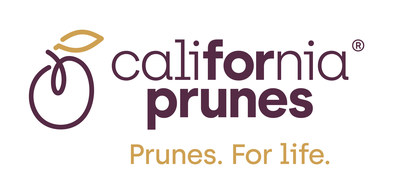New research published in the Journal of Medicinal Food suggests eating prunes each day can improve risk factors for cardiovascular disease (CVD) including raising antioxidant capacity and reducing inflammation among healthy, postmenopausal women.
|
ROSEVILLE, Calif., June 22, 2021 /PRNewswire/ -- New research published in the Journal of Medicinal Food suggests eating prunes each day can improve risk factors for cardiovascular disease (CVD) including raising antioxidant capacity and reducing inflammation among healthy, postmenopausal women. Cardiovascular disease is the number one cause of death worldwide posing a significant public health challenge. The research led by San Diego State University reveals that prunes can positively affect heart disease risk. "When you look at our prior research and the research of others combined with this new data, you'll see consistent evidence that eating prunes can promote health," said lead researcher Shirin Hooshmand, Ph.D., RD, Professor at the School of Exercise and Nutritional Sciences at San Diego State University. In this randomized, controlled study, researchers found that eating 50 grams of prunes (about 5-6 prunes) each day for just 6 months resulted in improved CVD risk biomarkers – including raising the body's "good" cholesterol, known as HDL, and lowering the ratio of total cholesterol to HDL. Researchers recruited 48 healthy, postmenopausal women who were divided into three groups – a control group who ate no prunes, and two treatment groups who consumed either 50 grams or 100 grams of prunes daily, throughout the six-month study. All other aspects of the women's diets and lifestyles remained similar to before the study. Various biomarkers of CVD risk were collected at the beginning and conclusion of the study to determine if there were any improvements in those biomarkers among those who consumed prunes. Interestingly, there were some similar positive results among those who ate 50 grams of prunes and those consuming 100 grams – suggesting that adding 5-6 prunes or more into the daily diet may have a positive effect on CVD risk. "Reducing chronic inflammation and increasing antioxidant capacity in the body is associated with lower risk of CVD, along with many other diseases," said Mark Kern, Ph.D., RD, CSSD Professor of Nutrition at the School of Exercise and Nutritional Sciences at San Diego State University. "Not only does this study show that prunes may be a good way to reduce inflammation and increase antioxidant capacity, it also suggests that eating prunes every day may improve cholesterol levels in postmenopausal women." While the precise mechanisms and specific compounds that contribute to these beneficial effects have yet to be determined, naturally occurring antioxidant-powered phenolic compounds, fiber and other nutrients are thought to play a role. This study demonstrates that prunes may be a promising and convenient addition to the diet to reduce CVD risk and inflammation, while also improving antioxidant capacity. FUNDING The Bone Reports study was funded by the California Prune Board. REFERENCES Strock NCA, Koltun KJ, Weaver C, De Souza MJ. (2021) Dried Plum Consumption Improves Bone Mineral Density in Osteopenic Postmenopausal Woman: A Case Report. Bone Rep. doi: https://doi.org/10.1016/j.bonr.2021.101094. ABOUT THE CALIFORNIA PRUNE BOARD
SOURCE California Prune Board |





